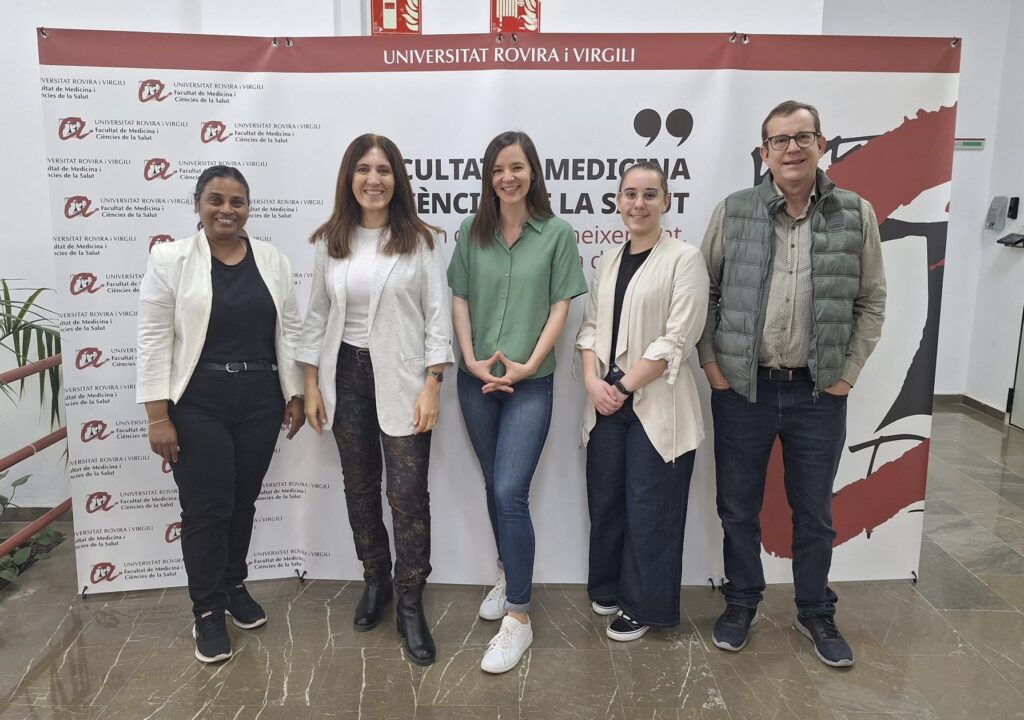A URV-IISPV-CIBEROBN study warns that 80% of children’s products are not nutritionally adequate and should not be promoted

Most foods for children under three years of age marketed in Spain are of low nutritional quality and do not meet the standards set by the World Health Organization (WHO). This is indicated by a study led by the Rovira i Virgili University (URV) together with the Pere Virgili Health Research Institute (IISPV) and the CIBER of Obesity and Nutrition (CIBEROBN), which warns that these products should not be promoted for sale.
To carry out the study, which has been published in the European Journal of Pediatrics, more than 800 products were analyzed, including purees, dairy products, snacks and beverages. The research team detected repetitive nutritional problems in these foods, such as a high content of added sugars -often in the form of concentrated juices-, low caloric intake and low energy density. In addition, many of the product labels analyzed were the result of marketing strategies that were misleading because they showed confusing product names, such as “veal with carrots”, in cases where veal was a minority ingredient. They also found food packaging with messages such as “no added sugars” and even with unscientific health claims.
“Many of these products generate a false perception of quality, when in fact they are not suitable according to WHO for the healthy development of children,” warns Paulina Maria Leszczynska, first author of the study.
“No podemos permitir que los intereses comerciales prevalezcan sobre la salud infantil. Es imprescindible contar con una normativa clara, vinculante y basada en evidencias científicas que proteja a la población más pequeña”, advierte Nancy Babio, investigadora del Departamento de Bioquímica y Biotecnología de la URV e investigadora principal del proyecto.
Stopped regulation
Currently, food advertising in Spain is governed by the PAOS Code, a voluntary self-regulation system with no sanctioning mechanisms. In 2022 the Ministry of Consumer Affairs proposed a Royal Decree to regulate the advertising of food and beverages aimed at children, using the WHO criteria as a basis, but the processing of the text is still blocked pending approval by the Council of Ministers.
In view of these facts, the research team has called on the Government to approve without further delay the Royal Decree regulating the advertising of baby food and to prohibit the promotion of products that are not suitable for children under 3 years of age, especially those with excessive sugar or misleading claims.
The work has been carried out by the dietitian-nutritionist Paulina Maria Leszczyńska and the research team of the Department of Biochemistry and Biotechnology of the URV Sara de Heras-Delgado, Sangeetha Shyam, Jordi Salas-Salvadó and Nancy Babio, which is also part of the IISPV and CIBEROBN. The study has counted with Diane Threapleton and Janet Cade, from the University of Leeds, authors of the Nutrient and Promotion Profile Model Calculator tool, used to evaluate the nutritional and promotional performance of children’s products according to the WHO model.
Bibliographic Reference: Leszczyńska PM, de Las Heras-Delgado S, Shyam S, Threapleton D, Cade J, Salas-Salvadó J, Babio N. Nutricional contento y promocionar prácticas de foods para niños y jóvenes en el español mercado: en el cross-sectional product evaluation. Eur J Pediatr. 2025 May 10;184(6):333. doi: 10.1007/s00431-025-06156-y. PMID: 40347273; PMCID: PMC12065749.